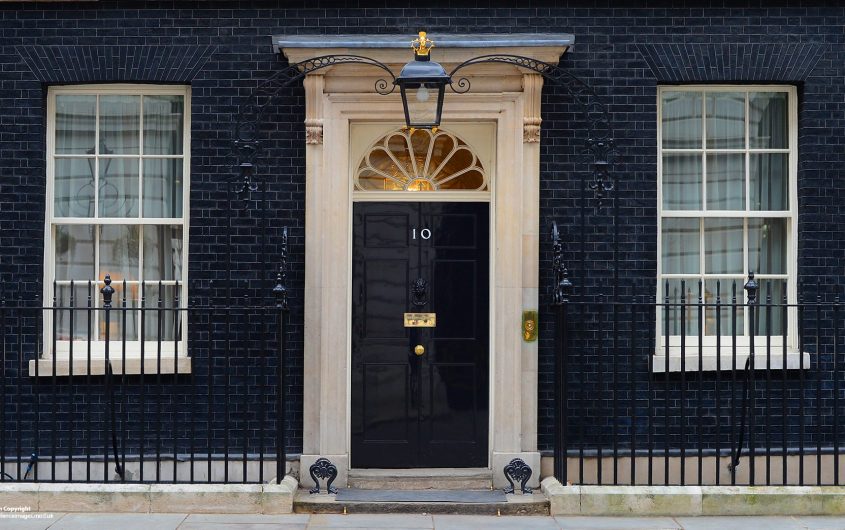
Crown Copyright 2013 Photographer: Sergeant Tom Robinson RLC Image 45155532.jpg from www.defenceimages.mod.uk via Flickr
The German SPD and the Curse of Corbynisation

Dan Hough
University of Sussex
Dr. Dan Hough is a Professor of Politics at the University of Sussex in the UK. His research focuses on party politics, corruption and anti-corruption. In terms of German politics, he's written one single-authored book on the Party of Democratic Socialism (the Left Party's predecessor) and one co-authored (with Jonathan Olsen and Michael Koss) book on the Left Party.
On December 12, Jeremy Corbyn’s Labour Party slipped to inglorious defeat in what was Britain’s third general election in four years. Labour’s worst result since 1935 leaves the party no option but to step back and re-think what it stands for, where it wants to go, and most pressingly, who it wants to be led by. The process of finding the answers to those questions will inevitably take quite some time.
There are at least three similarities between the SPD and Labour and all three should give the German Social Democrats cause for concern.
Left-wing parties across Europe will no doubt look at Labour’s humiliation with interest and no little concern. That is certainly going to be true in Germany, a country where the Social Democrats re-jigged their leadership team only 5 days before the left’s debacle in the UK election took place. There are at least three similarities between the SPD and Labour and all three should give the German Social Democrats cause for concern.
From Idol to Object of Derision
A key part of Labour’s transformation under Jeremy Corbyn has been to turn former leader Tony Blair into an object of derision. Indeed, Blair’s (and his successor, Gordon Brown’s) administrations (1997-2010) are widely criticized as sell outs to a loosely defined neoliberal cause. That Blair in particular made errors is a statement of the obvious; entering the 2003 Iraq War, for example, is widely regarded even beyond Labour circles as an egregious mistake.
Yet the significant spending increases in both the health and education sectors as well as the redistributive tax rises (“stealth taxes,” in the then terminology of the age) are more or less wholly overlooked. Blair’s—and Labour’s—successes have been effectively written out of the Labour narrative.
The German SPD has done much the same with its halcyon leader from the same period, Gerhard Schröder. Schröder, chancellor from 1998 to 2005 may (like Blair) have left office and looked all too keen to earn a bit of money himself elsewhere, but his term as chancellor had much that Social Democrats should be able to look back on with at least a modicum of pride.
For one thing, the SPD started to regularly win national elections again, for another the economic reforms that Schröder enacted helped Germany get through the financial crisis of the late 2000s relatively unscathed. There’s also a case to be made that his ability to keep Germany out of unpopular conflicts (Iraq) and involved in more necessary ones (Kosovo) was deserving of real credit.
Policy Problems
That supporters of both parties are unable to look back and carefully analyze the records of these leaders has much to do with the role that one particular policy plays in the contemporary narrative. For Labour it remains the Iraq War, a conflict that will forever be the first port of call when Tony Blair’s legacy is discussed.
For the SPD it is the reforms that the red-green government made in the early 2000s to the welfare state (the so-called “Hartz Reforms” that formed part of the Agenda 2010). Any and every SPD politician who was meaningfully active in the party’s leadership then is politically dead now. Some have retired, some moved on of their own volition, but others have simply not been allowed to forget the role that they played in apparently selling the SPD’s soul to the capitalist devil.
Why does this matter? It ensures that both parties are locked in battles about the past. If a politician is going to survive those battles, then s/he has to show that they are untainted by them. There is no space for nuanced discussion about the complexity of Middle East politics (Labour) just as there is no space to analyze any (even theoretical) merits of the Hartz reforms (SPD). Touch them and you die.
The Curse of Corbynisation
Finally, the SPD needs to beware of the curse of internal Corbynite politics. Jeremy Corbyn’s rise to the top of the Labour Party may have been a surprise to many (including himself, one suspects), but that has not stopped his supporters gaining a vice-like grip on the party’s internal affairs. Momentum, the Corbynite fan club founded in 2015 by Jon Lansmann, is the most obvious example of this, and Momentum members have proven very able at shaping Labour’s internal affairs. Indeed, woe betide the Labour activist who takes them on; de-selection (if you’re an MP) or simple ostracization (if you’re anyone else) is likely to come your way.
The SPD, on the other hand, has always been a particularly hard party to lead. Indeed, the political scientist Peter Lösche once described it as a party of loosely-coupled anarchy. That has always ensured that a Corbynisation of the SPD has been unlikely.
The election of Norbert Walter-Borjans and Saskia Esken as new party leaders nonetheless marks what could well be something akin to a German version of Corbynisation. If (1) talking positively about Gerhard Schröder’s administrations is frowned upon and (2) opposing Hartz IV has become an article of faith, then electing leaders that sound a lot more like Corbyn makes logical sense.
Both Walter-Borjans and (particularly) Esken have made it clear that they do not like being part of the Grand Coalition as it currently stands. With an internally powerful deputy like Kevin Kühnert, another outspoken critic of the GroKo, watching closely from over their shoulders, it is clear that the SPD is becoming more oppositional in its thinking.
Perhaps oddly, that need not be bad for German politics as a whole. The rise of the Greens and the need for the post-Merkel CDU to re-invent itself ensures that some much-needed life may well be blown into a German party system that is in desperate need of it. That new life may nonetheless mean that an angry, disgruntled SPD is dangerously close to going the same way as Corbyn’s Labour. The path to internal purity no doubt looks attractive to those currently on it. But will voters be of the same opinion? Given the SPD’s performances in a significant number of recent elections, and given Labour’s performance in 2019, there has to be significant doubt about that.








